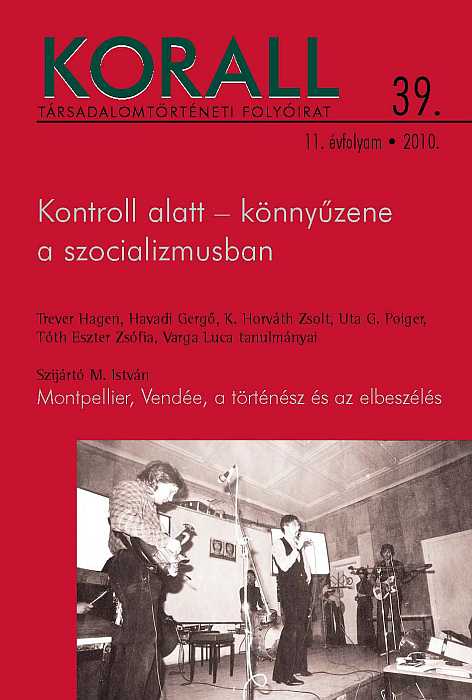Montpellier, Vendée, a történész és az elbeszélés
Montpellier, Vendée, the Historian and the Narrative
Author(s): István Szijártó M.Subject(s): History
Published by: KORALL Társadalomtörténeti Egyesület
Summary/Abstract: If we juxtapose Robert Merle’s historical novel, En nos vertes années, and Emmanuel Le Roy Ladurie’s book, The Beggar and the Professor, we are struck by the fact how many details in the novel are real – in the sense that they correspond to the sources, in this case Felix Platter’s diary, as used by Le Roy Ladurie, too. Real and fictional elements mingle without difficulty in the text of the historical novel. In fact, one of the directions, in which postmodern modifies the practice of a few historians, is mixing real and fictional elements (for example: in Simon Schama’s Dead Certainties). If we examine historical and literary narratives of the counter-revolutionary revolt in Vendée in 1793, we can state that historians use the same techniques as Victor Hugo or Honoré de Balzac to shape their texts, and through this they direct their readers’ sympathies towards the party that they side with. While these conclusions suggest that history is closer to literature than it is usually claimed, on the example of Simon Schama’s Citizens we can see, that history is still a different type of writing: historians might feel obliged to change their original point of view under the burden of the facts that they themselves enumerate in their texts.
Journal: Korall - Társadalomtörténeti folyóirat
- Issue Year: 2010
- Issue No: 39
- Page Range: 175-197
- Page Count: 23
- Language: Hungarian

